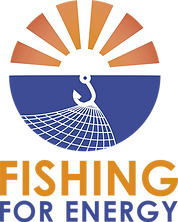
PARTNERING FOR SUSTAINABLE ECO-IMPACT
Our staff at Ocean Aid 360 understands that meaningful improvement - whether that is a human behavioral change or environmental restorative measure - requires participation from diverse stakeholders who represent the public, industry, and government. We believe that when these interests work together in harmony, that meaningful and lasting improvements for our marine life and coastal habitats are possible.
OA360 maintains active partnerships with the U.S. Government through the National Oceanic and Atmospheric Administration (NOAA) and the National Fish and Wildlife Foundation (NFWF); with the State of Florida through its Fish and Wildlife Conservation Commission (FWC); with anglers through the Coastal Conservation Association (CCA-FL), and with the public through Tampa Bay Watch. OA360's industry partners include Mercury Marine, Clearwater Marine Aquarium, Roundhouse Creative Studio, Boat and Motor Superstores of Palm Harbor, St. Pete Air, and more.
Ocean Aid 360 values new partners and invites contact from interested parties, especially commercial anglers and other working watermen and women, interested in contributing to current and future programming.
We invite your ideas and value your feedback!
Contact us at: info@OceanAid360.org










Ocean Aid 360 recognizes that fish are often the primary driver of estuarine restoration because they are good indicators of the health and productivity of estuarine systems. As secondary consumers, fish integrate the functioning of lower trophic levels, such as algae and the herbivores which feed on those algae; and fish are sensitive to physical system attributes like dissolved oxygen and salinity. This means that fisheries monitoring can play a critical role in gathering data toward evidence-based eco-analyses, which inform management.
Ocean Aid 360 is versed in statistical data management and modeling, which we use to better inform marine resource user groups, resource advocates, and policymakers.
Presently, Ocean Aid 360 is undertaking a coastal community-driven inventory of bycatch species found in 400 derelict and abandoned crab traps in Tampa Bay, plus an additional 500 traps from four more sample sites. This data will lead to a new understanding of the way that non-target species could be impacted by marine debris, and result in suggested measures, published as part of a formal activity evaluation.
Our staff has served in a monitoring and evaluation role for multiple federal agencies, and prioritizes sound methodology and inclusive, non-partisan, approaches to fact-finding.
We invite your ideas and we value your feedback!
Contact us at: info@OceanAid360.org

COASTAL COMMUNITY PROGRAMMING
Ocean Aid 360 is focused on empowering coastal communities, through education and clear pathways, to address challenges impacting adjacent marine habitat and resources.
We believe that by working directly with those who live in close proximity to vulnerable watersheds, Ocean Aid 360 can have a positive impact on issue awareness, strengthening of marine resource stewardship, and evidence-driven collective responses focused on resource restoration and resilience.
In 2017, our staff led the design of such a project called, "Coast Busters: Delivering education and awareness to upstream and underserved communities to decrease litter, propelled by rain and tide as marine debris, into the Tampa Bay estuary." This design is focused on the delivery of marine resource stewardship concepts at the primary school level, through traveling theater performances, science class lesson plans focused on marine habitat health, and a marine resource ambassadors component to encourage further reach of conservation concepts.
In 2018, Ocean Aid 360 expanded its commitment to community-led marine resource conservation, through the design and delivery of The Ghost Trap Rodeo event series. The Ghost Trap Rodeo educates and mobilizes local anglers, recreational and commercial, and other concerned resource user groups; to detect and remove derelict/abandoned crab traps and marine debris while carrying out a bycatch species inventory and marine debris mapping exercise to expand state and federal data sets which inform the targeting and allocation of future watershed cleanup resources.
Our staff is intent on promoting coastal community-level collaboration as a driver of change. We believe that listening and collaborative investigations can result in evidence-based solutions to complex challenges facing marine resources. We aim to promote citizen science, community-wide stewardship and conservation ethic, as safeguards against increasing demands on shared marine resources.
We invite your ideas and we value your feedback!
Contact us at: info@OceanAid360.org


